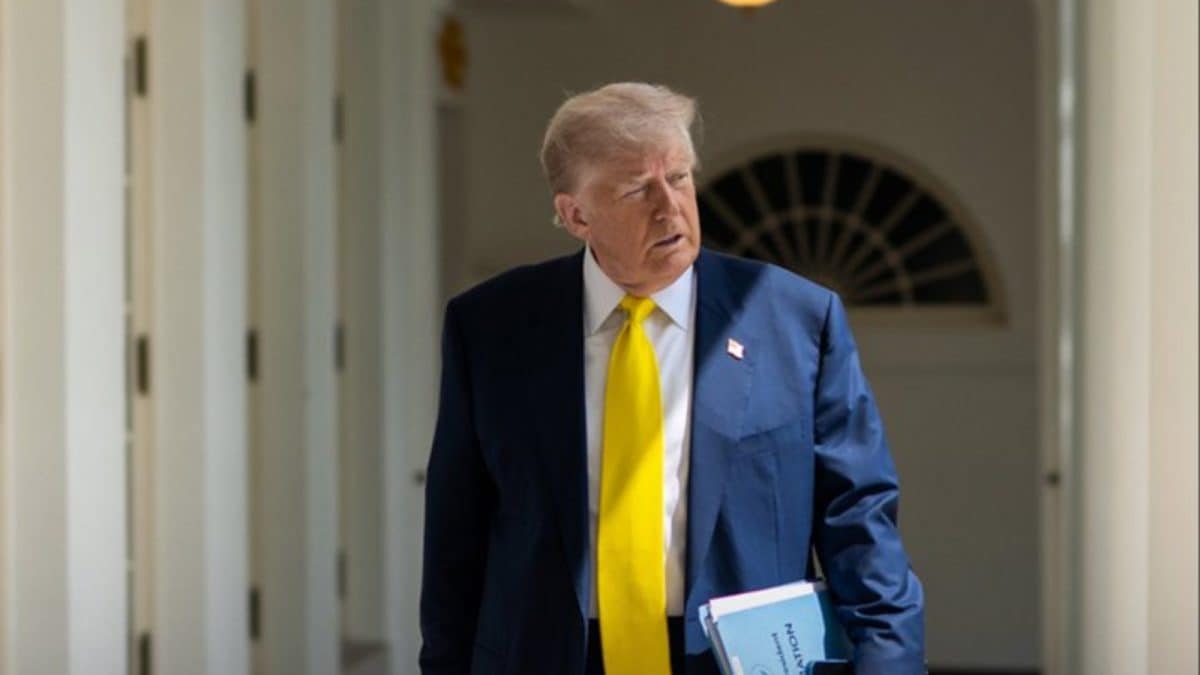ARTICLE AD BOX
In a veiled dig at the Congress party, Prime Minister Narendra Modi on Friday said important stanzas of the national song “Vande Mataram” were dropped in 1937 which sowed the seeds of partition, adding that a “divisive mindset” is still a challenge for the country.
He was speaking in the Capital at an event to kick off the year-long commemoration of the song Vande Mataram, marking its 150 years.
“Vande Mataram became the voice of India’s freedom struggle, it expressed the feelings of every Indian. Unfortunately, in 1937, important stanzas of Vande Mataram..a part of its soul, were separated. The division of Vande Mataram also sowed the seeds of partition. Today’s generation needs to know why this injustice was done with this ‘maha mantra’ of nation building..this divisive mindset is still a challenge for the country,” he said.
Noting that “Vande Mataram” is relevant in every era, the prime minister, in an apparent reference to Operation Sindoor, said, “When the enemy dared to attack our security and honour using terrorism, the world saw that India knows how to take the form of Durga”.
In his remarks at the event, the prime minister said, “Just a few centuries ago, India accounted for nearly one-fourth of the global GDP. However, he noted that when Bankim Babu composed Vande Mataram, India had drifted far from that golden era. Foreign invasions, plunder, and exploitative colonial policies had left the country suffering with poverty and hunger,” he said.
“Yet, Bankim Babu invoked the vision of a prosperous India, driven by his belief that no matter how great the challenges, India could revive its golden age. And thus, he gave the clarion call – Vande Mataram,” Modi said.
The prime minister stated that during the colonial era, the British sought to justify their rule by portraying India as inferior and backward. He emphasised that the very first line of “Vande Mataram” dismantled this false propaganda.
Story continues below this ad
Noting that in recent years, the world has witnessed the emergence of India in its true form, the Prime Minister highlighted progress in the fields of science and technology and its rise as the fifth-largest economy in the world.
Organised by the Ministry of Culture, the programme marked the formal launch of the year-long nationwide commemoration – November 7, 2025 to November 7, 2026 – celebrating 150 years of the composition written by Bankim Chandra Chatterji in 1875.
Union Minister Gajendra Singh Shekawat, Lieutenant Governor of Delhi, Vinai Kumar Saxena, Chief Minister of Delhi, Rekha Gupta were present at the event. A special commemorative coin and postage stamp dedicated to Vande Mataram were released.
Earlier in the day, the BJP alleged that the Congress party “brazenly pandering to its communal agenda under the presidentship of Jawaharlal Nehru, adopted only a truncated “Vande Mataram” as the party’s national song in 1937.
Story continues below this ad
“The Congress committed the historic sin and blunder of linking the song with religion. Congress under Nehru citing religious grounds deliberately removed stanzas of Vande Mataram which hailed Goddess Maa Durga,” BJP spokesperson CR Kesavan said in a post on X.
Sharing his message on the 150th Anniversary of India’s National Song, Congress President Mallikarjun Khadge said, “The Indian National Congress has been the proud flagbearer of Vande Mataram. It was during the 1896 session of the Congress in Calcutta, under the leadership of the then Congress President, Rahmatullah Sayani, that Vande Mataram was sung publicly for the first time by Gurudev Rabindranath Tagore.”
“It is deeply ironic that those who today claim to be the self-proclaimed guardians of nationalism – the RSS and the BJP, have never sung Vande Mataram or our National Anthem Jana Gana Mana in their shakhas or offices,” he added.
The national song “Vande Mataram” by Bankimchandra Chatterji was written on Akshaya Navami which was on November 7, 1875. Vande Mataram first appeared in the literary journal Bangadarshan as part of his novel Anandamath. The song, invoking the motherland as the embodiment of strength, prosperity and divinity, gave poetic expression to India’s awakening spirit of unity and self-respect. It soon became an enduring symbol of devotion to the nation.







 English (US) ·
English (US) ·